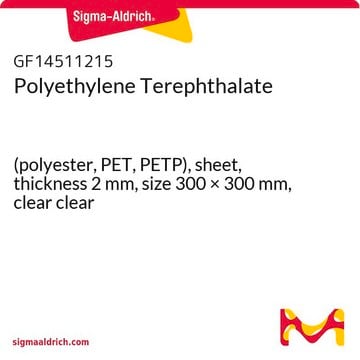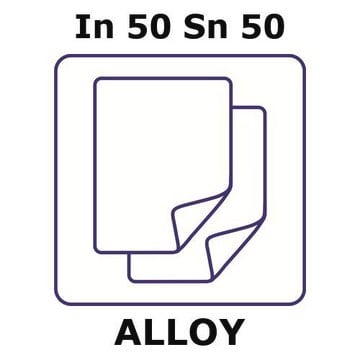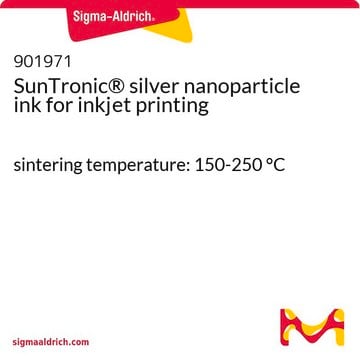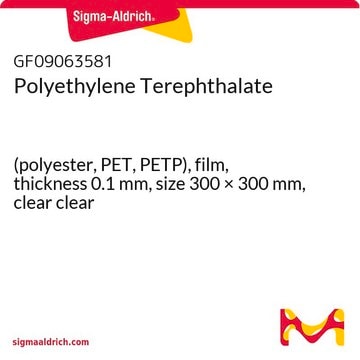639281
Indium tin oxide coated PET
surface resistivity 100 Ω/sq, L × W × thickness 1 ft × 1 ft × 5 mil, sheet
Synonym(s):
ITO-PET, Polyethylene terephthalate film, ITO coated
About This Item
Recommended Products
form
sheet
Quality Level
surface resistivity
100 Ω/sq
L × W × thickness
1 ft × 1 ft × 5 mil
transmittance
550 nm, >77.0%
SMILES string
O=[In]O[In]=O.O=[Sn]=O
InChI
1S/2In.5O.Sn
InChI key
LNNWKAUHKIHCKO-UHFFFAOYSA-N
Looking for similar products? Visit Product Comparison Guide
General description
Application
Features and Benefits
Physical properties
Quantity
Storage Class Code
13 - Non Combustible Solids
WGK
WGK 3
Flash Point(F)
Not applicable
Flash Point(C)
Not applicable
Personal Protective Equipment
Choose from one of the most recent versions:
Already Own This Product?
Find documentation for the products that you have recently purchased in the Document Library.
Articles
In this article, we demonstrate that bis-styrylbenzene derivatives show promising characteristics for very low lasing thresholds and discuss the design considerations for organic lasing molecules.
Organic photovoltaics (OPVs) represent a low-cost, lightweight, and scalable alternative to conventional solar cells. While significant progress has been made in the development of conventional bulk heterojunction cells, new approaches are required to achieve the performance and stability necessary to enable commercially successful OPVs.
A transparent conductive electrode (TCE) is an essential component of various optoelectronic devices such as solar cells, liquid-crystal displays (LCD), light-emitting diodes (LED), and touch screens.
Progress in solution-processed functional materials leads to thin-film optoelectronic devices for industrial and consumer electronics.
Our team of scientists has experience in all areas of research including Life Science, Material Science, Chemical Synthesis, Chromatography, Analytical and many others.
Contact Technical Service






